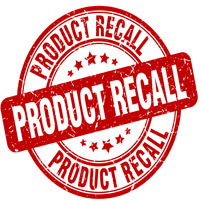Philadelphia Product Liability Lawyers: EpiPens Recalled
May 12, 2017Recall in U.S. and Across the World
 In the wake of recalls in other countries, the United States has also ordered the recall of many lots of EpiPens. An EpiPen is an injection device that contains epinephrine, a chemical that opens up a person’s airway when they have an allergic reaction. EpiPens also help to limit other potentially dangerous allergic reactions, like general anaphylaxis (severe allergic reaction), wheezing, low blood pressure and hives. As a form of emergency medical treatment, EpiPens are able to help save lives while medical help is on the way.
In the wake of recalls in other countries, the United States has also ordered the recall of many lots of EpiPens. An EpiPen is an injection device that contains epinephrine, a chemical that opens up a person’s airway when they have an allergic reaction. EpiPens also help to limit other potentially dangerous allergic reactions, like general anaphylaxis (severe allergic reaction), wheezing, low blood pressure and hives. As a form of emergency medical treatment, EpiPens are able to help save lives while medical help is on the way.
Allergic reactions can range from mild to deadly and their causes vary from person-to-person. Some people know exactly what they are allergic to, because they have had an allergy towards something for years. Others become allergic to something unknowingly. Allergic reactions are when a person’s immune system begins to fight against something that, typically, the body does not view as a risk. People can have allergic reactions to food, dust, and medication—pretty much anything. In the case of a serious allergic reaction an EpiPens can be used and be very useful, even saving someone’s life. Oftentimes, they are kept in-case-of emergencies in schools and workplaces. The Food and Drug Administration (FDA) released a nationwide recall on EpiPens, citing that they carried the risk of being ineffective for consumers and fail to decrease the dangerous symptoms of an allergic reaction as they are intended to do.
EpiPens can be injected directly by its users or a bystander. To use effectively, the shot is injected into a person’s thigh so that the epinephrine enters their muscle. In two cases, the FDA reported that consumers attempted to use their EpiPens and the product failed entirely to deliver the medication. Luckily, in both instances the people had “back-up” EpiPens in their possession and were able to take the lifesaving medication, epinephrine.
Meridian Medical Technologies, which is based out of the U.S. and manufactures the two recalled EpiPen models, has pulled its product from shelves in this country, Australia, Japan, New Zealand and countries throughout Europe. There are 13 lots that have been recalled, some containing EpiPens and others containing an EpiPen Jr. model. To view the entire recall posted by the FDA, please click here. The recalled models were distributed between December 2015 and July 2016 and all have 2017 expiration dates.
Because the recall is the result of a defect which could make the EpiPen completely ineffective, rendering a consumer unprotected in the case of an allergic reaction, the FDA advises consumers to consult emergency medical help immediately, especially if an EpiPen does not activate. Consumers who are in possession of a potentially effected EpiPen or EpiPen Jr. will be provided with replacements or financial refunds.
It is important to review the FDA’s national recall to ensure that if you do own an EpiPen that yours is not on the list of recalled lot numbers and does not carry the danger of being defective. A person can have an allergic reaction out of the blue, and because the body can change it can develop new allergies without warning. If you do need to carry an EpiPen on your person in case of emergency, we urge you to make sure that the product is up-to-date and not included in the FDA’s international recall.
Philadelphia Products Liability Lawyers at Galfand Berger, LLP Pursue Compensation for Those Injured by Product Defects
If you or a loved one has been injured because of a dangerous of defective product, please call the knowledgeable Philadelphia personal injury lawyers at Galfand Berger, LLP. With offices located in Philadelphia, Reading, Lancaster and Bethlehem, we serve clients throughout Pennsylvania and New Jersey. To schedule a consultation, call us at 800-222-8792 or complete our online contact form.
 Google Screened
Google Screened
